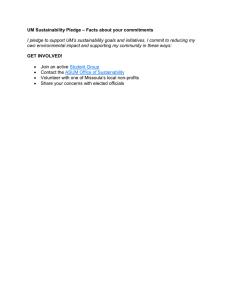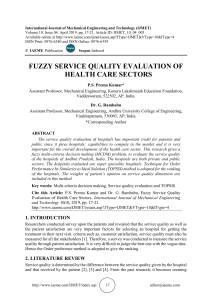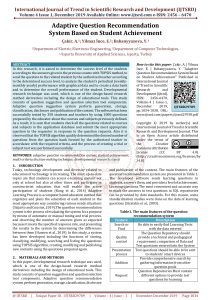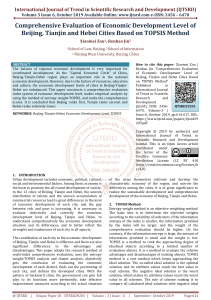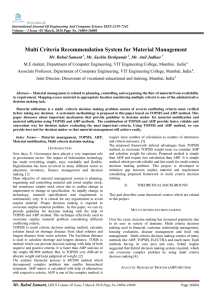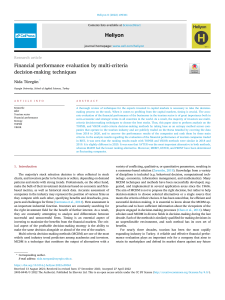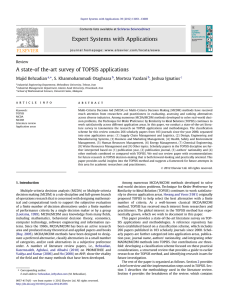Proceedings of 13th Asian Business Research Conference
advertisement
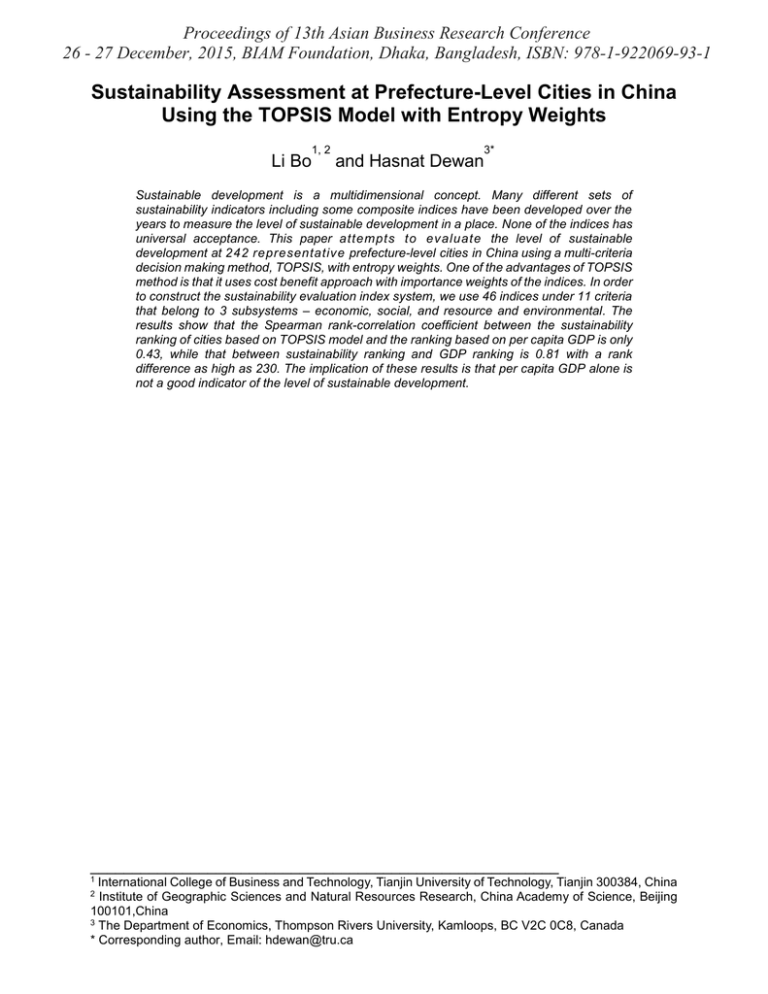
Proceedings of 13th Asian Business Research Conference 26 - 27 December, 2015, BIAM Foundation, Dhaka, Bangladesh, ISBN: 978-1-922069-93-1 Sustainability Assessment at Prefecture-Level Cities in China Using the TOPSIS Model with Entropy Weights 1, 2 Li Bo 3* and Hasnat Dewan Sustainable development is a multidimensional concept. Many different sets of sustainability indicators including some composite indices have been developed over the years to measure the level of sustainable development in a place. None of the indices has universal acceptance. This paper attempts to evaluate the level of sustainable development at 242 representative prefecture-level cities in China using a multi-criteria decision making method, TOPSIS, with entropy weights. One of the advantages of TOPSIS method is that it uses cost benefit approach with importance weights of the indices. In order to construct the sustainability evaluation index system, we use 46 indices under 11 criteria that belong to 3 subsystems – economic, social, and resource and environmental. The results show that the Spearman rank-correlation coefficient between the sustainability ranking of cities based on TOPSIS model and the ranking based on per capita GDP is only 0.43, while that between sustainability ranking and GDP ranking is 0.81 with a rank difference as high as 230. The implication of these results is that per capita GDP alone is not a good indicator of the level of sustainable development. ________________________________________________________ 1 International College of Business and Technology, Tianjin University of Technology, Tianjin 300384, China Institute of Geographic Sciences and Natural Resources Research, China Academy of Science, Beijing 100101,China 3 The Department of Economics, Thompson Rivers University, Kamloops, BC V2C 0C8, Canada * Corresponding author, Email: hdewan@tru.ca 2


